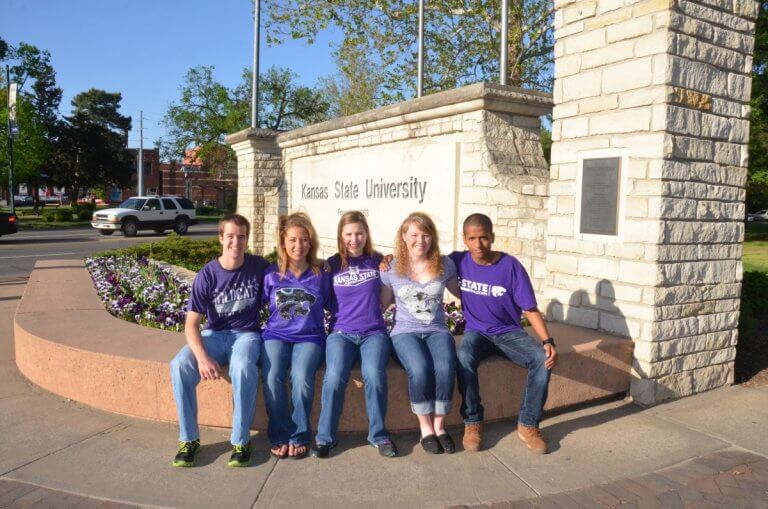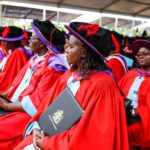
In their pledge to end poverty, protect the planet and ensure prosperity for every global citizen, the UN 2020 Sustainable Development Goals call for a systems approach from stakeholders. From student to teacher, farmer to scientist, global civilian to industry leader, policy-shaper to change-maker; together, our efforts will help feed the world. Influential education providers will headline the charge, empowering students, teachers and the wider public with research and knowledge that supports a sustainable way of life. The College of Agriculture at Kansas State University (K-State) is one such institution.

“K-State has a good sorghum genetics and genomics program,” says Jacques Faye, a 29-year-old international student at K-State, originally from Senegal. “It is well-known around the world because of its involvement in international research development…My research will definitely contribute to food security in developing countries,” he concludes, “particularly in West Africa.”
Home to four USAID Feed the Future Innovation Labs, K-State is an academic pioneer of sustainable progression. This ground-breaking, government-funded initiative tackles global hunger and food security issues, targeting 19 low-income countries in Latin America, sub-Saharan Africa and Asia, while striving to accelerate:
- inclusive agricultural growth,
- improved nutrition,
- gender integration,
- private sector engagement,
- research and capacity building, and
- climate-smart development.
“With the advance in science and technologies, I have everything I need to succeed in my PhD program and my research for improving crop adaptation,” says Fanna Maina, a 31-year old PhD student from Niger, currently studying Agronomy at K-State. “My country has experienced a severe food crisis,” she adds. “Through new developments in science, we can develop climate-resilient and preferred varieties to ensure food security…I hope to support breeding efforts through my research by providing them tools for future agriculture.”

These reputable Innovation Labs have been granted in line with K-State’s commitment to securing global food resources. Sorghum and Millet Innovation Lab (SMIL) centers on Ethiopia, Senegal and Niger, striving to boost the adaptation and resilience of sorghum and pearl millet in West and East Africa, also expanding market demand and product-development opportunities.
The Applied Wheat Genomics Innovation Lab is directed at India and Pakistan, working to implement heat-tolerant, high-yielding and farmer-accepted wheat varieties that make use of local cultivars and breeding networks.
The Reduction of Post-Harvest Loss Innovation Lab (PHL), tackles accessibility to safe and nutritious foods in nations like Bangladesh, Ethiopia, Ghana and Guatemala. The target is decreasing losses in stored product crops to further increase the consumption rates of food already in the production system, thus reducing food insecurity and hunger.
Finally, the Sustainable Intensification Innovation Lab (SIIL) will produce measurable results in reducing world hunger, poverty and improving the nutrition of smallholder farmers. Focusing on Ethiopia, Tanzania, Senegal, Burkina Faso, Bangladesh and Cambodia, the SIIL bolsters agricultural productivity and income, set on improving integrated farming systems for these impoverished regions.

Activities center on four key areas: to sustainably boost the production of nutritious food and encourage dietary diversity; to bolster the involvement and empowerment of women in agricultural production and processing; to increase food production through improved crop-production technologies; and to prevent food waste while food safety.
Each one of these labs serves to blend K-State’s expertise with those of fellow universities, the US Department of Agriculture and other public/private organizations, creating a base of knowledge that has the potential to instigate universal change.
“With four Feed the Future Innovation Labs now hosted by…K-State Research and Extension, USAID is making a nearly $100 million investment in Kansas State University’s ability to provide leadership to the global food systems research, teaching and extension efforts,” says John Floros, Dean of the College.

But K-State’s greatest assets and drivers of change are indeed its students. In fact, a number of talented scholars have been recruited from their home countries to pursue world-class PhD study at K-State, the aim being to eventually lead them back to their home countries where they can implement what they have learned. Ralph Armah, a 31-year old PhD student of Agricultural Economics aspires to do just that. Originally from Ghana, Ralph aims to take his skills back home when he graduates in 2019, improving the food crisis for his local community, and the world at large.
“This PhD program presents unique opportunities for students to both interact and collaborate with faculty on many fronts to ensure their personal and academic development,” Ralph explains. “Upon completion of the program,” he adds, “I hope to be on the ultimate cutting-edge with regards to solving food and agriculture-related problems. I look forward to applying the skills I acquire to conduct meaningful and impactful economic, as well as interdisciplinary, research.
“Widely-reported issues of food loss and waste in many parts of the world – especially sub-Saharan Africa – is worth addressing,” the student concludes. “Therefore, obtaining a PhD in Agricultural Economics will prepare me to better appreciate and understand the core issues of the discipline with more depth, and to further propose tested logical solutions to the global food crisis issue.”
Follow KSU on Facebook, Twitter, YouTube, FourSquare, Google+ and LinkedIn
Liked this? Then you’ll love these…
Bridging the skills gap: Universities that produce job-ready Agriculture graduates
K-State College of Agriculture: Where professional focus blends with industry experience







